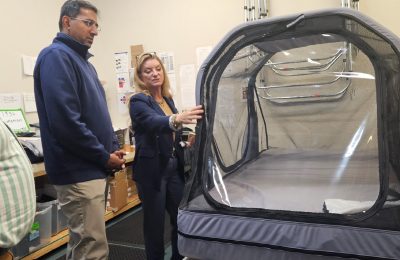WHAT IS THE UNIFORMED SERVICES EMPLOYMENT & REEMPLOYMENT RIGHTS ACT (USERRA)?
The Uniformed Services Employment and Reemployment Rights Act of 1994 (USERRA) prohibits discrimination against individuals on the basis of membership in the uniformed services with regard to any aspect of employment. In addition, employers must:
• Re-employ individuals who are absent from employment by reason of service in the uniformed services;
• Restore seniority and other rights and benefits that employees had when they commenced service in the uniformed services; and
• Provide any additional seniority, rights and benefits that employees would have attained if they had remained continuously employed. Employers must also notify employees of their rights, benefits and obligations under USERRA.
I AM A SMALL EMPLOYER. DOES USERRA APPLY TO ME? WHICH EMPLOYEES?
USERRA applies to all public and private employers in the United States, regardless of size. It also applies in overseas workplaces that are owned or controlled by U.S. employers. The Act protects all individuals that are members of the U.S. uniformed services, including the Armed Forces, National Guard, commissioned public health service employees (for example, Army, Navy, Marine Corps, Air Force, Coast Guard), National Oceanic and Atmospheric Administration. Rights under USERRA are afforded to individuals who are volunteers, draftees or reservists.
The Act gives protections to individuals who are absent from work for active duty, active duty for training, initial active duty for training (such as drills), inactive duty training, full-time National Guard duty and state active duty. USERRA also covers a period for which a person is absent from a position of employment for the purpose of an examination to determine the fitness of the person to perform any military duty.
You may have veterans on your payroll who have recently returned from service. If so, these employees may be excited about their jobs, but they may also need time to adjust to civilian life and the workplace.
Co-workers and friends are often grateful for the veteran’s accomplishments. Yet as this treatment wears off, the grind of the daily routine can set in. Below are some issues that returning veterans deal with and may find difficult to adjust to, specifically concerning their return to work:
• A slower decision-making process in the business world than in combat situations • Working at lower intensity levels in a quieter atmosphere and calmer environment, where anxiety and focus may be significantly lower
• Slower-paced schedules and relaxed attitudes Employers who have veterans on their payroll can do many things to help them integrate into their jobs once they return from war.
• If employees appear as though they want to discuss their experiences, offer a listening ear. If they do not want to discuss these experiences, that position should be respected.
• Support employees with patience, encourage them to engage with others and provide opportunities for continued success.
• Leverage their skills learned in the military in their everyday roles.
• Offer the services of your Employee Assistance Program (EAP) for veterans who need further assistance, counseling support, etc.
Returning veterans can provide unique knowledge and skills to your company. Retaining this type of talent is also beneficial from a public relations standpoint, as your organization is employing a demographic that has made substantial sacrifices for others.

Tammy Lamary-Toman, JD, PHR, is the vice president/employment counsel for the Manufacturer & Business Association. Contact her at 814/833-3200, 800/815-2660 or ttoman@mbausa.org













